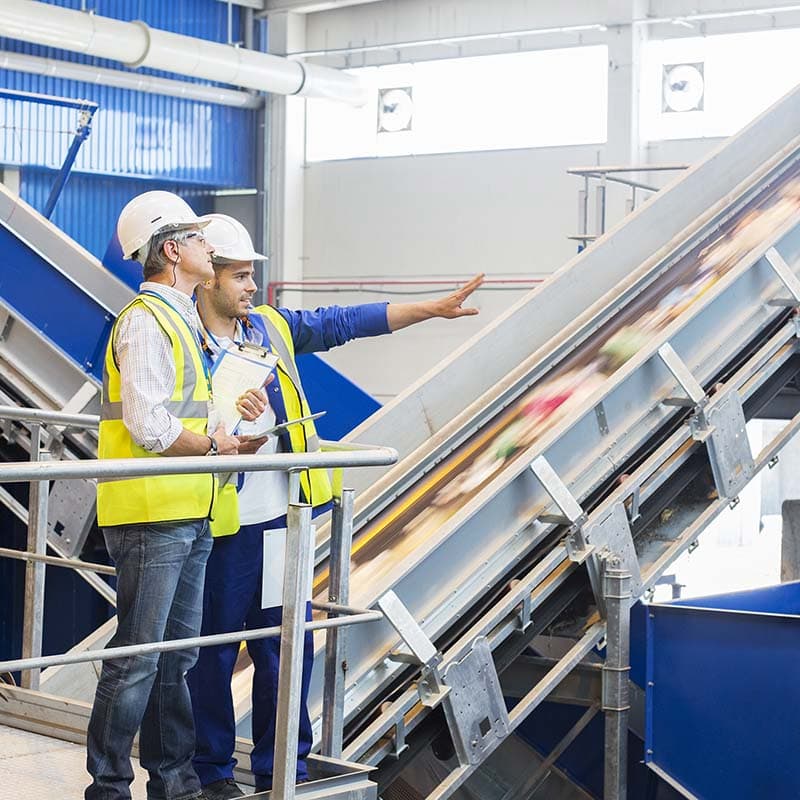
Scotland’s Circular Economy Practices Ecosystem
Our report ‘Scotland’s Circular Economy Practices Ecosystem’, developed in academic partnership with the University of Stirling, is significant in its transcendence of traditional thinking and approaches to the development of the circular economy in Scotland.
The report explores a systems-thinking approach, to the challenge of increasing the prevalence of businesses adopting circular economy practices.
Barriers to businesses being more circular
Using an ecosystem framework (a widely-used academic approach), allowed us to investigate the external influences on businesses with regards to the adoption of circular economy practices.
This provided an understanding of the environment within which businesses operate (the ecosystem), broken down into areas of influence (elements) and helped us to build a picture of the barriers to circular economy practices.
In summary, the ecosystem framework recognises that society and the structure of the economy influence how businesses operate, and the decisions that they make.
Exploring circular practices in Scotland
The central question explored by our report is: What affects the uptake of Circular Economy Practices by businesses in the Scottish Economy and why?
The report aims to:
- Define the Scottish Circular Economy Practices Ecosystem
- Understand the current business conditions for Circular Economy Practices in Scotland
- Investigate the main barriers preventing businesses from adopting Circular Economy Practices
- Explore the interplay among the barriers and their impact on the business environment
The Report and its findings are the starting point for a journey towards improving the conditions for the adoption of circular economy practices by businesses in Scotland.
Webinar - Advancing Scotland’s Circular Economy: An Ecosystem Approach
On Tuesday 10th September, Zero Waste Scotland hosted a webinar to discuss the findings of the report. The session was lead by Business Support Manager Peter McCafferty and joined by Dr Michaela Hruskova from Stirling University, who co-authored the report, where they discussed takeaways from the report and what it means for the circular economy going forward.
FAQs
What do we mean by ecosystem in the context of circular economy?
A circular economy practices ecosystem is a complex network of individuals and organisations whose actions support the adoption of business practices that are consistent with decreasing the input of virgin resources into the economy by using less, using for longer, using again, and switching to regenerative material use.
Why was this approach adopted to consider the challenges businesses face when adopting circular economy practices (CEPs)?
Circular economy business practices are initiatives and activities that a business can adopt that are consistent with decreasing the input of virgin resources into the economy by using less, using for longer, using again, and switching to regenerative material use.
Viewing the question of circular economy practices adoption in Scottish businesses through the lens of an ecosystem framework provides a way to understand both the nature of the problem and the broad structure of the solution.
What research methodology was used and why?
The research objective was to have a deep understanding from expert voices as to the barriers to adopting circular economy business practices in Scotland. Given this is a complex topic area, the aim was to understand and seek input from stakeholders who represent businesses, sectors or provide business support. This is why a qualitative approach using in-depth interviews was the most suitable research methodology for this piece of work. Using sector expert voices ensured the opinions we gathered during the research represented the experience of working with a vast range of businesses and so their insights proved extremely valuable as they were founded on collective and diverse experiences.
We partnered with academic experts at the University of Stirling who specialise in entrepreneurial ecosystems in the scoping, design, delivery and analysis of research findings.
What do the report findings mean for the work of Zero Waste Scotland and what support will be available in future?
Scotland’s Circular Economy Practices Ecosystem report gives us a robust framework and systems-thinking approach to look at issues and challenges of adoption and mainstreaming the circular economy. The main finding from the report was that Scotland’s economic conditions are not conducive to adoption of circular economy practices by businesses.
Zero Waste Scotland has been delivering one-to-one circular economy business support directly to SMEs and at sector and regional level since 2016. Through our experience of supporting over 200 businesses over time this period and from the evidence gathered during the ecosystems report compilation, business support at this micro-level on its own is not sufficient to shift the dial in encouraging mainstream adoption of circular economy business practices.
As a result, we are evolving our operating model to address this and pivoting towards influencing systemic change, using the ecosystem model as a framework for this.
How can my business support and become part of the Zero Waste Scotland circular ecosystem?
Our ecosystem report looks at the environment that businesses are currently operating in, the challenges they face, and potential solutions. Currently, our ecosystem work isn’t available as a network that businesses can join, but we are developing our offering to businesses in line with the findings and recommendations of the report.
Shifting culture requires support at many levels. In support of this culture change and facilitating a broader understanding of the circular economy, is it helpful to share incremental changes to businesses and individuals?
Yes, our Ecosystems report identifies the importance of taking a coordinated approach to change – noting that business, citizens and government all have a role to play. Individually if one group in the system moves too far ahead, or falls too far behind, the system will become imbalanced and that impedes progress. Culture and Knowledge are two important elements and we need to do more to raise awareness and create incentives for individuals to become more involved with circular economy products and services. This starts to create a more balanced demand which will stimulate supply – but only if we are also sharing those success stories and clearly articulating the benefits amongst business of adopting CEPs.
Now that the ecosystems report has been published, what are the next steps?
The report draws out 16 actionable insights which will inform future activities for Zero Waste Scotland and our stakeholders. Insights include the need for simplified language, addressing externalities, the importance of networks and partnerships.
This is the beginning of an exciting journey towards a more sophisticated understanding of the environment within which Scottish businesses currently operate and the aspects of that environment which present challenges to the adoption of circular business practices.
You can also sign up to our newsletter Rewire to keep up to date with the latest as news, webinars and support opportunities when they are available.
Recommended articles
- Guidance
- Webinars

